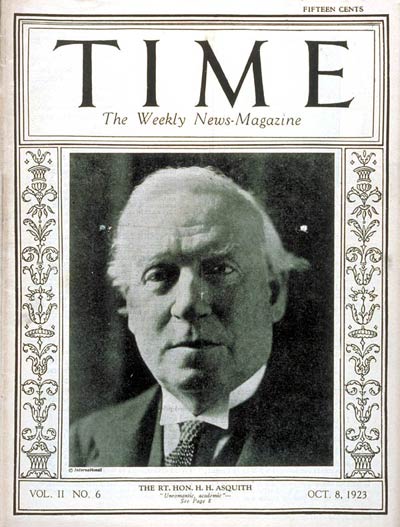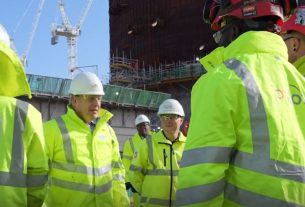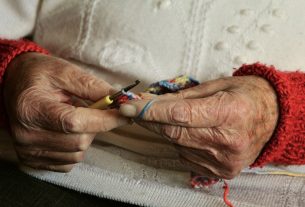On the 75th anniversary of Victory in Europe Day the Prime Minister Boris Johnson’s letter to the veterans of WW2 described theirs as “the greatest generation of Britons who ever lived”, to whom: “Those of us born after 1945 are acutely conscious of the debt we owe.”
Yesterday (Thursday) the deaths of nine Chelsea Pensioners with coronarivurs was announced by the Royal Chelsea Hospital, the retirement and nursing home, which, since 1692 “have offered care and comradeship for [British Army] veterans in recognition of their loyal service to the Nation.”
Of the hospital’s 290 residents, a further 58 have recovered after testing positive for Covid-19 or showing symptoms – the numbers more poignant still by being so reflective of the coronavirus crisis engulfing Britain’s care homes for the nation’s elderly.
‘The blond magnificence – he’s truly Churchillian’
This “harvesting” of the country’s frail, old and infirm, coupled with the abandoned “herd immunity” policy portrays a very different picture to the one the PM would prefer us to see, especially on the anniversary of VE Day.
The “blond magnificence”, as Tim Stanley fawningly described the PM in the Telegraph less than six months ago, has seen his government’s approval ratings dip in the polls as the litany of its failures in tackling the coronavirus grows.
Pre-pandemic, Stanley wrote the latest in a series of Telegraph articles by various authors sketching Johnson as this generation’s Winston Churchill.
It’s a comparison Johnson has unabashedly sought and long coveted and Brexit was, as it was being written, the proof that “he’s truly Churchillian.”
Bojo’s more like Squiffy
However, given his government’s mishandling of the pandemic – its failure to prepare and stockpile PPE despite warnings from experts, “herd immunity” and delay to lockdown, continued failure to hit its own daily-tests target, the crisis in care homes and continued shortage of PPE – more parallels could be drawn to Britain’s WW1 Prime Minister, HH Asquith.
Herbert Henry Asquith had been PM for more than eight years before he was ejected from office on December 5, 1916, “effectively a coup d’etat” by politicians who had lost faith in his ability to lead the country to victory.
Squiffy, as Asquith was also known given his penchant for alcohol, led in times far more turbulent than those of recent years, but he had become distracted and apparently disinterested in the duties his position required.
Bojo, as Alexander Boris de Pfeffel Johnson is also known, has only been in power since December and his recent enforced absence follows other absences highlighted in the same reports describing his disinterest in detail, or for working weekends, or attending Cobra meetings.
The Lady protests
“Often he would sit in Cabinet writing love letters while vital discussions raged around him” says a piece in the Daily Mail under the headline: “The priapic PM who wrote love letters to his mistress as he sent a generation off to die in the trenches”.
Squiffy, the priapic PM had high society women complaining of his “drooling, high thigh stroking advances” and even Clementine Churchill complained of his habit of peering down cleavages.
Lady Ottoline Morrell, we are told, “protested that Asquith ‘Would take a lady’s hand as she sat beside him on the sofa, and make her feel his erected instrument under his trousers’.
But such behaviour did not cost Asquith his job as PM in 1916 – in the same way that similar “high thigh stroking” allegations didn’t stop Johnson becoming PM last year.
‘There is not a word of truth in that statement’
Asquith first had to withstand pressure following British failures in battle blamed on a shortage of high explosive shells. In April 1915, he said “I saw a statement the other day that the operations…of our army were being crippled by our failure to provide the necessary ammunition. There is not a word of truth in that statement.”
There was more than one word of truth and many dead soldiers – “men died in heaps upon the Aubers Ridge … because the field guns were … gravely short of high explosive shells” wrote The Times as the press hit back and “three weeks later the disclosures made by The Times about our lack of high explosives at the battle of Festubert demolished the claim” made by Asquith.
The PM never recovered his authority in the press or in his cabinet and though it was not the single factor or incident that cost Asquith his premiership, it was fatally wounded by the failure to provide those on the frontline the equipment they needed, compounded by the lie and loud claim that they were, and had been.
History echoes in morning’s silence
Swap munitions and field guns for PPE and gowns; dead soldiers for dead health care workers and care home residents, and it’s easy to hear history echo in a morning’s two minute silence for VE Day, as a nation stood to remember, though the daily Covid death toll did not stall.
General Sir Adrian Bradshaw, the governor of the hospital that cares for the Chelsea Pensioners, said veterans would mark VE Day “in a manner appropriate to the current situation”.
They would enjoy some “internal, socially distant events” but these will be “against the backdrop of the recent losses we have suffered”.
The general added: “Most of our pensioners have risked their lives serving our nation through war and conflict somewhere in the world, just as our NHS staff and care workers are providing vital and sometimes dangerous service to the nation here at home during this crisis.
“We salute all those working in the health and care sectors at this time and we understand only too well the difficulties that they face.”




